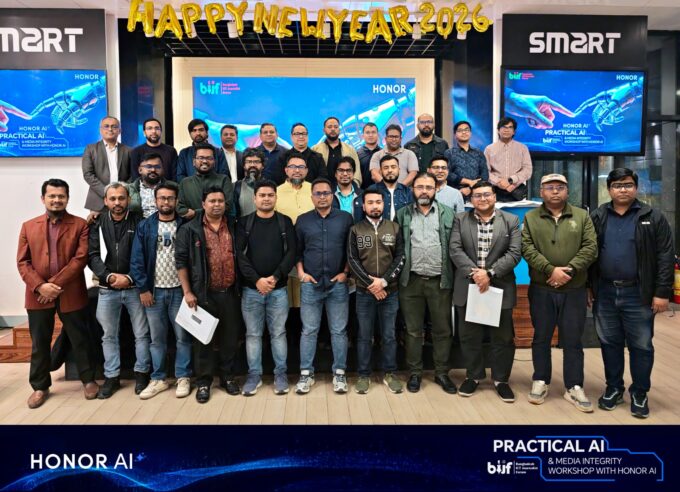In a powerful address on September 8, 2024, Bangladesh’s Chief Adviser, Dr. Muhammad Yunus, emphasized a transformative idea: the need for children, adolescents, and youths to focus on communication skills, particularly through learning multiple languages. His statement marks a significant shift from the traditional focus on pass rates, reflecting a broader vision of education in Bangladesh that addresses the underlying causes of unemployment and skill gaps among the country’s youth.
This refreshing perspective from one of the country’s foremost leaders brings much-needed attention to the skill deficiencies in Bangladesh’s education system, which have long contributed to a growing unemployment crisis. In our earlier analysis, Bangladesh 2.0: It’s Time to Address Unemployment Problems for Our Graduates, we highlighted how the absence of practical skills, both at the university and school levels, has widened the gap between education and employability.
In this article, we explore some of the key skills that schools and colleges should focus on to build a more capable and versatile generation, ready to meet the demands of the modern job market.
Communication Skills: A New Emphasis
As Dr. Yunus noted, it is time for Bangladesh to place a greater emphasis on communication skills, particularly through learning multiple languages. Schools can play a pivotal role in this transformation, equipping students with the tools to succeed both in their home country and globally. English, as the second language of Bangladesh, has long been crucial for securing jobs in the private sector. However, despite its inclusion in the school curriculum, a significant portion of the population struggles to achieve proficiency in the language. This failure to master English continues to limit job opportunities for many Bangladeshis.
Read more: Effective Communication in the Classroom: Skills for Teachers!
Given the increasingly interconnected nature of the global economy, language proficiency, particularly in English, has become more critical than ever. In addition, the growing economic ties between Bangladesh and China have resulted in a demand for Chinese language skills in the private sector. By expanding the scope of language learning in schools, Bangladesh can prepare its future workforce for an increasingly competitive job market.
- The Role of Language Clubs: One innovative way to address this issue is through the creation of language clubs in schools. These clubs could focus on improving reading, writing, and speaking skills in foreign languages, providing students with the confidence to use these languages in real-world contexts. They could also offer introductory classes in various languages, giving students the option to learn languages like Chinese, French, or even Japanese, alongside English. By introducing language education at a young age, schools can foster a love for learning languages and prepare students to adapt to future linguistic needs.
Research and Presentation Skills: Bridging the Gap
In Bangladesh, the traditional education system has been overly focused on textbooks, memorization, and exam results, often at the expense of other essential skills. One such skill is the ability to conduct research and present ideas effectively—key competencies in the modern workplace. While much of the world has moved toward a more research-oriented approach to education, where students are encouraged to seek knowledge beyond textbooks, Bangladesh has yet to fully embrace this shift.
- Classroom Presentations: One way to bridge this gap is by incorporating presentations into classroom assignments. Whether in Bangla or English, presentations can encourage students to conduct research, analyze information, and present their findings in a structured manner. This not only helps students develop their public speaking and communication skills but also teaches them how to convey complex ideas concisely—an ability that is crucial in today’s corporate environment.
Teachers could assign research projects on various topics, encouraging students to explore beyond the textbooks and use the vast resources available online. By presenting their findings in front of their peers, students would gain confidence and develop their ability to articulate ideas clearly. This process would also teach them how to collaborate, a skill that is often lacking even among university graduates.
Computer Skills: Building a Technologically Savvy Generation
In the story of Bill Gates, much has been made of the fact that his high school provided him with access to a computer, a rare resource in the 1960s. This early exposure to technology played a crucial role in his future success as the founder of Microsoft. Today, in the digital age, computers are even more integral to education and the workplace. Yet, in Bangladesh, access to technology in schools is still limited, and many students graduate without even basic computer skills.
- Introducing Technology in Schools: To address this gap, schools should integrate computer skills into their curriculums. Starting from a young age, students can be introduced to basic tools like Microsoft Word, Excel, and even simple graphic design programs like Paint. As they progress, schools can offer more advanced training in coding and programming, potentially through after-school clubs or specialized programs.
By providing early exposure to technology, schools can help students discover their interests in fields like software development, digital marketing, or data science—fields that are increasingly in demand. Moreover, computer literacy is now considered a fundamental skill in virtually every profession, so equipping students with these abilities will significantly improve their employability.
Government’s Role: Supporting Public Schools
While private schools may have the flexibility and resources to introduce these extracurricular activities and clubs, the majority of Bangladesh’s students attend public schools. For these students, government intervention will be necessary to bring about meaningful change. One possible solution is for the government to create district-level language and computer institutes that students can attend after school or on weekends. These institutes could offer specialized training in foreign languages and computing skills, providing opportunities for students from lower-income backgrounds to develop these critical skills.
- District-Level Language and Computer Institutes: Imagine a network of language institutes where students can learn languages like English, Chinese, or French from a young age. In parallel, computer institutes could offer training in both basic and advanced computer skills, preparing students for the demands of the digital economy. These programs would not only enhance the educational experience for students but also improve their future job prospects.
A New Path for Bangladesh’s Education System
The importance of addressing skill gaps in Bangladesh’s education system cannot be overstated. By shifting the focus from pass rates to skill development, schools can play a critical role in preparing the next generation for success. Through the introduction of language clubs, research presentations, and computer training, schools can equip students with the tools they need to thrive in an increasingly competitive world. While private schools may lead the way, government support will be essential in ensuring that students from all backgrounds have access to these opportunities. As Bangladesh looks to the future, the importance of equipping its youth with these vital skills has never been clearer.
For more updates, be with Markedium.









































Leave a comment